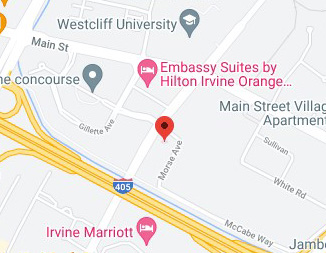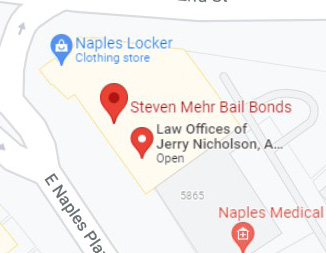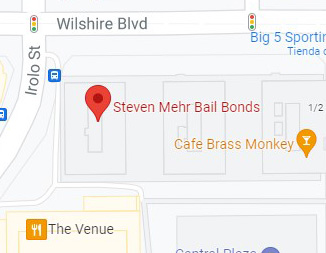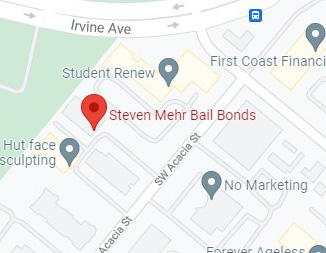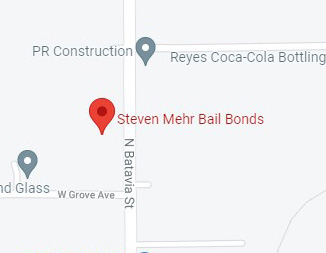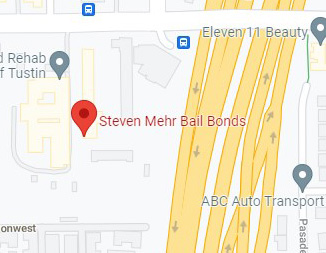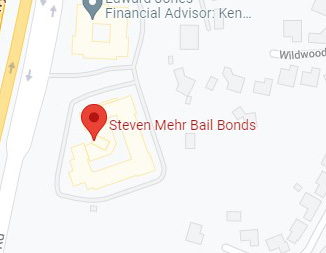If you have never been arrested, you probably hear of the terms bail and bond but don’t understand their meaning. Also, you wonder how a person released on bail still has to visit court. At Steven Mehr Bail Bonds, we define these terms and how the process works so that if you or a family member is in jail, you can understand how bail works in Downey and take the proper steps towards early freedom before trial.
General Overview and Legal Definition of Bail and Bonds
Bail payment or bond purchase to obtain an early release from custody is a complex concept to understand. When you are arrested for a breach of the law, someone could pay cash to the court for your freedom.
Often, many Downey, CA residents unfamiliar with the justice system will not know the action to take after they are apprehended. You will probably have many questions about the entire process, including:
- Workings of the bail process
- The ways courts set bail money
- Ways of paying bail
Bail is money paid to the court to obtain freedom. You could be the person delivering the money, or someone else could do it for you. The funds act as insurance that you will attend court proceedings as arranged. Therefore, bail is not a punishment for contravening the law or a way to raise money for the government. Instead, it guarantees you will show up in court after release from custody.
In contrast, a bail bond is a financial agreement between you and your Downey bail company to free you from custody. After the contract, the bondsman contacts the court for your release before appearing for your hearings and trial. However, before the court agrees to let you leave custody, the bail agency must deposit collateral or funds with the court. The amount to be paid is set by the same court or provided in the bail schedule.
Your bondsman is responsible for your court appearances in the bail bond contract. If you are a no-show, your bail agent will be responsible for tracking and presenting you back in court.
Skipping or missing arranged hearings shouldn’t cross your mind because of the brutal repercussions of these actions. One of the consequences of the move is bail forfeiture. You will lose all the money deposited with the court. Again, the judge might issue a bench warrant, allowing the bond company to send a bounty hunter after you. If you are rearrested, you will be brought back to court and charged with skipping or failure to appear (FTA).
Keep in mind that the only way to drop a bench warrant is if you present yourself in court. You can choose to do this alone or with the help of your attorney. The best way to appear is by having legal counsel by your side to help resolve the matter professionally and as per the law.
Even when you have violated the terms of your pretrial release, the judge retains the discretion to maintain your bail. However, this can only happen when you have valid reasons for missing court. Some of these reasons are:
- You developed a disability that hindered your court appearances
- You were apprehended and held in custody outside your jurisdiction
- You underwent a severe illness or harm that had you hospitalized
Any defendant who has skipped jail for invalid reasons could use the same reasoning to explain why they missed court. To differentiate lies from the truth, the judge will require documents to prove the legal reasons for FTA. You can bring medical reports from the doctor treating your disability, proof of detention in another jurisdiction, and other documentation that can show your hospitalization for a particular duration due to a severe medical condition.
Nevertheless, when you go to court for your proceedings as arranged and the matter is concluded, you will receive back your bail money. However, if the court finds you guilty and part of your punishment involves paying monetary court fines, you might not obtain your money back because it will go towards the court fines.
Apprehension and Booking Processes
You will go to Downey Jail for booking when you are apprehended in Downey. The police will only book you and go home for minor offenses. However, if the crime involved is a serious felony or violence-related, the officer might file charges. Here, you will be held in a detention facility for some time until you are presented before a judge, bailed out, or the issue is decided in another way.
Booking is the administrative process when you are brought to jail or a police cell. At this stage, a booking officer records your personal particulars like legal name, age, mug shot, and fingerprints and conducts a health evaluation. And because you are not allowed to bring your personal effects like jewelry, phone, cash, and others, they will be confiscated and held until the day you will be leaving jail. The administrative procedure might take between two to eight hours, depending on the prison or police station traffic.
Once you are booked, the arresting officer prepares a case file detailing the offense you have committed and evidence to prove the allegations and sent to the prosecutor for evaluation. The prosecuting lawyer examines the evidence presented to back the accusations against you, and if they are satisfied they have a strong case, they proceed to file charges in court. However, when the prosecuting attorney feels the evidence is insufficient to support the allegations, they send the file back to the investigating officer to gather more evidence to support their claim.
Note that as you wait for the review of your file by the prosecutor, you will be placed in a police cell. However, before this, you will have a chance for a single phone call. You can choose to make the call to your family or bondsman. You should call your bail agency if you have a few reputable names. However, if you are new to this, you might want to call a family member to hire a bondsman on your behalf and commence the process of freeing you from jail.
When the prosecutor decides to take up the case, they can file the lawsuit as a misdemeanor or felony. For a misdemeanor, you might be asked to sign a citation, promising to present in court when the court requires you to do so. Other times, the judge might release you on your recognizance without setting any release conditions.
Lastly, the judge might impose a particular bail amount that you must pay if you leave jail custody pending your court hearings. Bail is set if you have committed a serious offense that requires some guarantee or surety that you won’t skip bail. Also, where there is a severe offense in question like murder, the court might deny you bail and continue holding you until the matter is resolved and a court verdict issued.
Downey Bail Schedules
Bail schedules are lists of the predetermined bail amount for various offenses in a given jurisdiction. Courts determine the bail appearing in these schedules according to the law. These lists are the ones that decide whether you will be released just by signing a citation. Further, they determine if you can post the bail provided after the booking process or first go through a bail hearing. In California, you will be held after booking, awaiting the bail proceeding if you commit any of the following offenses:
- Terror threats
- Spousal rape or battery
Additionally, the court holds the discretion of increasing or decreasing the predetermined bail if appropriate.
Bail Hearing and Determination
Bail proceedings often happen to determine the bail money you should pay. However, this doesn’t mean that bail is guaranteed if you go through this proceeding. The judge can choose to deny bail based on the offense’s nature. Whether the judge grants or denies bail depends on:
- Your community links
- Your safety and the general public’s safety
- Whether you are a flight risk
- Your assets or earnings
- Your criminal history and record of court appearances
- How severe the offense is
Payment of Bail Bonds
Bail and bail bonds are often confused when discussing pretrial release. However, the fact is that the two terms are different even in the payment mode. You or your family members can pay bail directly to the court. However, when it comes to bail bonds, you will need a bondsman or company to pay the bond on your behalf, but only after entering into a financial contract.
Typically, a bondsman agrees to post bail for you if you pay a non-refundable premium fee of 10% of the total bail. Once you have paid this premium, the company will come to the jail or police station where you are detained and post the entire bond. A clerk or cashier receives the amount, and after this, they call the detention facility you are held in and ask the correctional officers there to release you. If the clerk is in the jail, you are being held; the release process will be prompt. However, if the bondsman went to court to make the payment, it might take a few hours.
Selecting the Right Bail Bonds Company
Being apprehended or knowing a loved one is behind bars is a devastating experience. One way to come out of this unfortunate incident is by working with a renowned bondsman or agency. Unfortunately, all bail agencies in Downey aren’t equal, meaning you need to know what to look for in these companies when hiring. Picking the right bail bond services means peace of mind for you and a short stay in jail. To select the right professional for the job, use the following tips:
1. Select a Bondsman who will Meet your Needs
A bondsman who will meet your needs has all state requirements, including licensure. Therefore, when hiring, make sure the expert is competent and professional. The best way to do this is by running background checks on the bail company or agent to ensure they have valid practicing licenses and insurance.
Also, after you pick a company, make sure the bail agent being assigned your case is not new to it. To tell if the agent can meet your expectations, you should ask them questions about the bail process and if they have completed cases like yours in the past. The right agent should be knowledgeable about your bail, an excellent communicator, and possess quality customer service skills.
2. Pick a Reputable Bonds Agency
Reputation is critical when choosing a bondsman. Therefore, when searching, look online for renowned bail agencies. You can visit their websites and read online reviews from previous customers. If they have many positive reviews, it’s a sign they have quality services.
Again, you should look at how long the company has been around. The longer they have survived in the market, the more knowledge they have of the criminal justice system. A company that has been around long enough will possess the connections in all the relevant offices, prompting your release.
3. Availability and Flexibility
Most arrests occur at the wee hours of the night or on weekends when most businesses are closed. Therefore, you want a bail company that will be available at your hour of need, meaning they should be available twenty-four hours a day, seven days a week.
Also, when it comes to payments, you want a versatile company that provides multiple payment modes. Remember, the fee for bail services in California is fixed as per the law. However, a bail agency can still stand out in this market by offering flexible payment options. That way, even if you lack the collateral needed as insurance for the bail bond, the company will develop a payment plan that matches your needs to enable you to leave jail before case determination.
Downey Jail
Downey Courthouse
Find a California Bail Bonds Near Me
Do you need bail services in Downey, California? Regardless of the time, you are arrested, Steven Mehr Bail Bonds is ready to help. After we learn of your arrest, bail amount, and the location of the detention facility, we will prepare the necessary paperwork, and within a short time, you will be back to your everyday life. If you require bail, call us at 800-834-8522 to commence the process.





